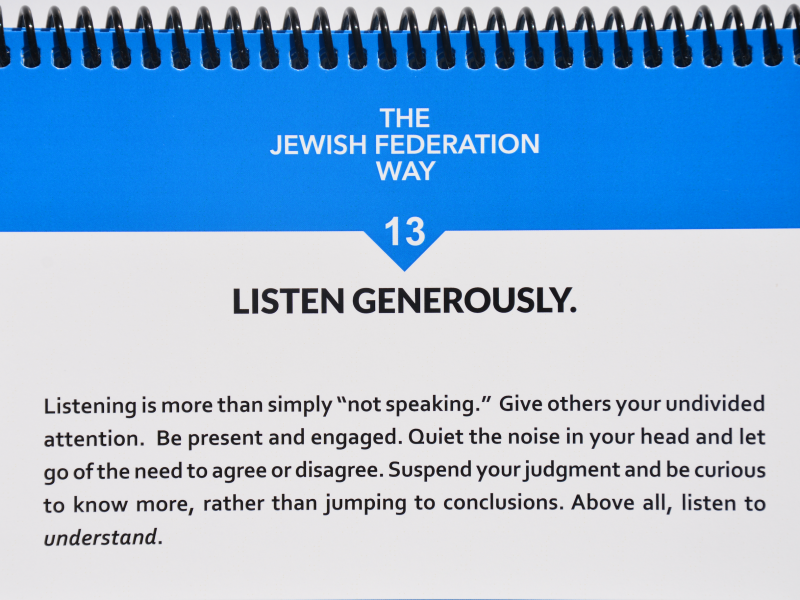Danielle V. Minson — Raising the Bar

Fundamental #13: Listen Generously
Fundamental #13: LISTEN GENEROUSLY. Listening is more than simply “not speaking.” Give others your undivided attention. Be present and engaged. Quiet the noise in your head and let go of the need to agree or disagree. Suspend your judgment and be curious to know more, rather than jumping to conclusions. Above all, listen to understand.
I feel odd giving advice about this fundamental because I am not naturally good at it. And I still have a lot of improving to do.
I like people and I love to listen to their stories. But as soon as people present a problem, my mind is busy trying to solve the problem instead of listening fully. So my challenge is to clarify what the speaker wants from me—problem-solving or just open, supportive listening.
I am also easily distracted. So if I’m in a big meeting and I’m not contributing to the conversation, I’ll be tempted to be productive otherwise—like by checking my email. This leads to a difficult issue—when is it appropriate to use a smartphone/iPad or laptop during meetings.
I am the last to suggest rigid or black and white rules about checking our gadgets both because each situation is unique and because I don’t want to be a hypocrite. My best advice is to “check in” and “agree on expectations” at the start of the meeting.
For example, I often take notes during meetings. So I will check in and say: “Is it ok, if I take some notes on my laptop?”
That way everyone knows I’m not doing emails. Even more important, while I take notes, I keep eye contact. That’s key—if you are not keeping eye contact, you are not really listening. Keeping eye contact is important in all meetings with our colleagues. But it is even more essential in meetings with volunteers/community leaders. They are giving time that they could be spending with their families and they are probably making a significant gift that is helping to run our organization and pay our staff. All we have to give in return is generous, undivided attention.
If you have a specific need to glance at your phone periodically, always check in and explain why. For example, you could say: “I’m sorry but my daughter is home sick, so I’ll have to check for texts from my babysitter occasionally.”
But if you can’t really give your attention in a meeting, it’s better not to go. We are all under a lot of pressure to produce work. But if you are consumed by a fast approaching deadline, rather than secretly working on the project while pretending to listen—if you are not essential to that meeting—it’s better to tell your colleagues that you have a pressing deadline, that you feel confident the group will do great without you and ask if it’s okay to excuse yourself.
If you disagree with these suggested guidelines, want to add to them or have questions about them, please let me know by email or in person.
Most important, technology aside, when we learn to give others open undivided attention, we become more valuable not just to our colleagues but to everyone in your life. So practice on your colleagues and surprise your loved ones!
See here for Shep’s comments on all the fundamentals so far.


